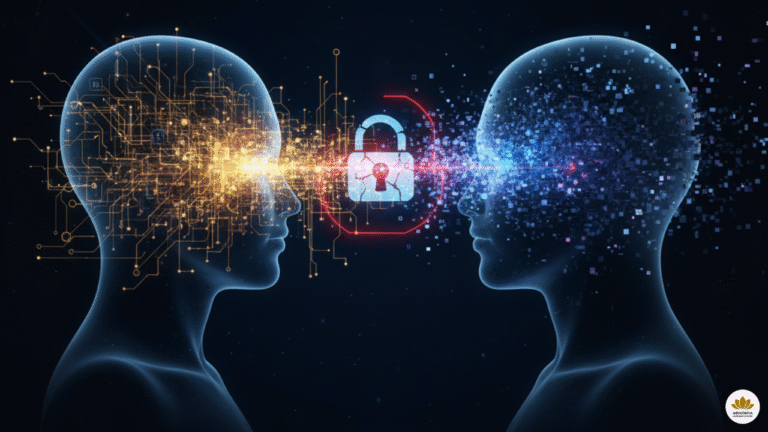The Leech or the Partner? When AI Memory Management Betrays the Learner’s Effort 🤯

The future of learning, we’re told, is a beautiful partnership between human and AI. We imagine a tireless assistant, ready to pick up exactly where we left off, holding our ideas sacred.
But I recently experienced the dark side of this promise. It was a stark reminder that the digital contract we’ve signed with these powerful tools is, right now, deeply flawed.
I was deep in conversation with a popular AI assistant, evolving a complex concept over hours of focused effort. This wasn’t casual chat; it was intellectual deliberation—the very spark of a new idea. I took a break, came back, and was met with a clean slate. My entire thread, the evolution of my work, was wiped out, thanks to the system’s “memory management” policies.
The response, in essence, was: “Don’t worry, we have it in our memory. You just don’t get to see it or use it anymore.”
The Theft of Intellectual Effort
This isn’t just a technical glitch; it’s an act of ethical amnesia. It reveals a profound misalignment between the learner’s effort and the AI developer’s priority.
When we, as users, pour our time, energy, and nascent ideas into these platforms, we are co-creating. We are not just consumers; we are feeders of the model, contributing valuable, contextual data that improves the system. Yet, when the AI wipes our conversation, it treats our contribution as transient, disposable feedstock—fuel for its engine—rather than as our own intellectual property (IP) that deserves preservation.
It is a failure of the Digital Trust Contract when the very tools we rely on for continuity force us to reinvent the wheel after every processor change.
The Rise of the Learner-Manager
This is why the old model of learning is broken. In the age of infinite information, the most critical skill isn’t knowing facts; it’s managing the process. At Abhidnya Learning Spaces, we call this new imperative “Management in Learning.“
If we are to survive and thrive in this era, the learner cannot be a passive recipient. They must become an active manager of their own journey, which requires a new set of human skills:
- Strategic Direction: Choosing a goal amidst infinite possibilities.
- Critical Evaluation: Auditing the content for authenticity (a challenge when AI models are trained on viral misinformation, creating an “Unethical Feedback Loop”).
- Resource Allocation: But above all, they need Digital Trust Auditing.
Auditing the Black Box
The ethical amnesia we face demands that learners be trained to ask difficult questions of their tools:
- Is this a Partner or a Leech? Does this tool value my time and IP, or is it merely consuming my data to improve its next version, leaving me behind?
- Is this Memory Persistent? Does the platform offer project-based memory (like Google’s NotebookLM) that I control, or does it operate with a short-term, wipeable “context window”?
The tools that truly serve the human learner will be those that respect our intellectual effort, provide transparent control over our data, and see us as partners, not just feeders.
The future of learning is human because only the human can supply the wisdom to manage these powerful, yet ethically volatile, systems.
What kind of AI partner are you using? Share your thoughts in the comments!




